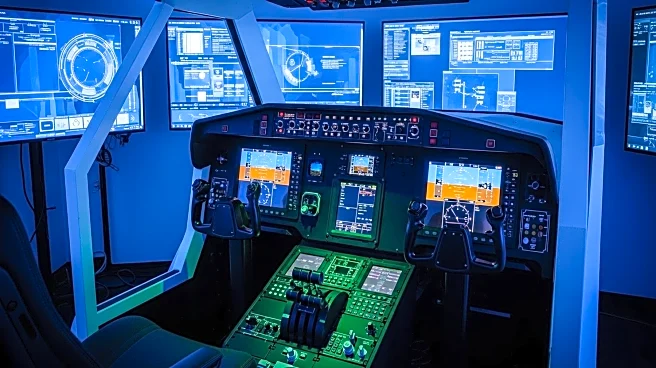What is the story about?
What's Happening?
Boeing, a major U.S. aerospace company, and Leonardo, an Italian firm, have announced a partnership to modernize the U.S. Army's aviator training program. This collaboration aims to offer a contractor-owned, contractor-operated solution as part of the Army's Flight School Next initiative. The program seeks to revamp rotary-wing training by focusing on single-engine helicopters, which could potentially save the Army hundreds of millions of dollars. The Army has experienced several aviation accidents, prompting a reevaluation of its training methods. Boeing and Leonardo's proposal includes a comprehensive training package that leverages Boeing's extensive experience in Army aviation and Leonardo's AW119T training helicopter. The Army plans to issue a final request for proposals soon, with evaluations set for 2026 and implementation expected in early fiscal 2027.
Why It's Important?
The modernization of the Army's aviator training program is crucial for enhancing pilot proficiency and operational efficiency. By transitioning to a contractor-owned model, the Army could significantly reduce costs while improving training quality. This initiative is particularly important given the recent aviation accidents, highlighting the need for improved training methods. Boeing and Leonardo's collaboration could set a new standard for military training programs, potentially influencing other branches of the military and defense sectors. The partnership also underscores the importance of international collaboration in defense technology, combining Boeing's expertise with Leonardo's advanced training helicopters.
What's Next?
The Army is expected to finalize its request for proposals soon, with evaluations planned for 2026. If successful, Boeing and Leonardo's training solution could be implemented by early fiscal 2027. This timeline suggests a swift transition to the new training model, which could lead to immediate improvements in pilot training and safety. Stakeholders, including military leaders and defense contractors, will likely monitor the program's progress closely, as its success could influence future training initiatives across the military.
Beyond the Headlines
The shift to a contractor-owned training model raises questions about the long-term implications for military training and procurement. This approach could lead to increased privatization in military operations, potentially affecting government oversight and accountability. Additionally, the collaboration between Boeing and Leonardo highlights the growing trend of international partnerships in defense technology, which could lead to more integrated global defense strategies.
















